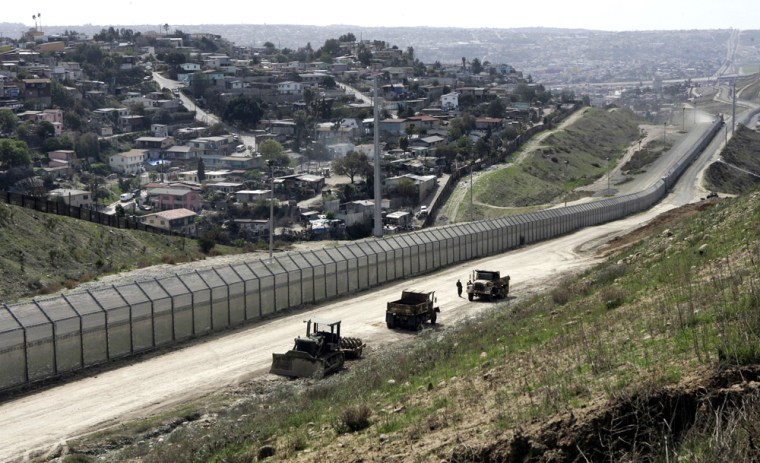At a recent strategy session, Hispanic political activists debated ways to characterize the 700-mile fence along the Mexican border approved last month by Congress.
“Berlin Wall” was the language used in the meeting agenda.
“Better to call it the ‘Apartheid Wall’ because of the racial implications,” one man said.
“We should call it what it is — an extension of the ‘Tortilla Wall,”’ another activist suggested, referring to the derogatory name Mexican immigrants gave fences built around Tijuana in the 1970s.
With the Democrats set to take control of Congress next year, pro-immigrant groups are meeting around the nation to devise a new strategy to win amnesty for illegal immigrants, repeal of the Secure Fence Act and more visas for foreigners.
Activists say they have a better chance of gaining reforms under the Democrats than under the Republicans, but believe it will still require intense political pressure and efforts to mold public opinion.
‘They better listen to us’
“We are not taking it like the Democrats are a panacea for immigration reform,” said Armando Navarro, coordinator of the National Alliance for Human Rights, an umbrella organization for Hispanic groups in Southern California. “But if they hope to capture the White House in 2008, they better listen to us.”
Anti-illegal immigration groups counter that a number of Democrats will be loath to embrace legalization for the estimated 12 million illegal immigrants in the U.S.
“Many newly elected members ran on a ticket of enforcement, so it’s going to be difficult for them to turn around and vote for amnesty,” said Ira Mehlman, spokesman for the Federation for American Immigration Reform, an anti-illegal immigrant group.
Last spring, Hispanic organizations, churches, unions and Spanish-language disc jockeys mobilized hundreds of thousands of people to protest a House bill passed last December to crack down on illegal immigrants and those who helped them.
However, cracks appeared in that united front after the Senate passed a bill in May that would create a path to citizenship for some illegal immigrants and a guest-worker program to bring mostly low-wage agricultural workers into this country.
Some Hispanic groups hailed the legislation as a first-step compromise, while others rejected it. Unions worried that the guest-worker clause would erode organizing efforts.
Healing the rifts
Now, activists are trying to repair those rifts and show a united front when they push the Democrats for reform.
“I’ve been making reconciliation calls,” said Nativo Lopez, president of the Mexican-American Political Association. “It’s extremely important that we come back together.”
Some groups said activists should focus on a single issue this year: amnesty for all illegal immigrants. But not everyone agrees.
Kevin Appleby, director of migration and refugee policy for the U.S. Conference of Catholic Bishops, said the public expects comprehensive solutions, and so activists should also focus on the need for a new visa system and the root causes of immigration from Latin America.
Hispanic organizations have held numerous regional meetings and plan national gatherings beginning in January. They plan to send illegal immigrants to lobby in Washington. Also, immigrants will send pictures of their families to lawmakers to gain their sympathy.
Latino clout rises
Exit polls conducted for The Associated Press and other media during last week’s election showed 69 percent of Hispanics voted for Democrats, and 30 percent for Republicans. In 2004, President Bush got about 40 percent of the Hispanic vote.
As proof of growing Hispanic clout, activists pointed to Bush’s decision last week to choose Florida Sen. Mel Martinez as Republican National Committee chairman.
Democratic leaders on Capitol Hill did not mention immigration reform while talking about their immediate priorities after last week’s election. That has some activists worried that Washington might try to avoid the issue completely.
But Eliseo Medina, executive vice president of the Service Employees union, warned: “The Democrats can’t take for granted that the Latino vote will stay with them if they don’t do anything.”
